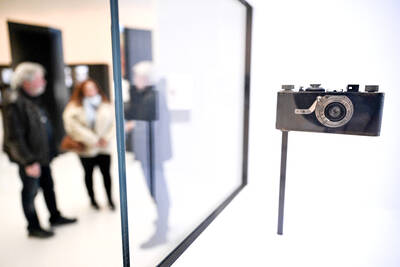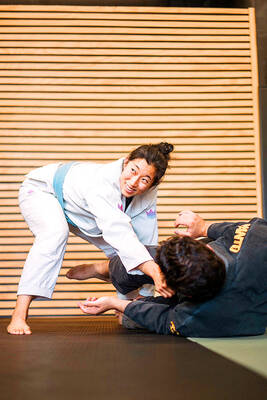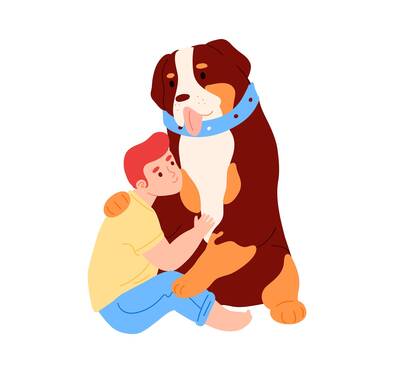A long-standing preference among South Koreans for sons rather than daughters is changing amid new social trends, according to a survey cited by experts.
Researchers asked couples expecting a child whether they wanted a daughter or a son. Some 38 percent of expectant mothers said they wanted a daughter, 31 percent wanted a son with the remainder sitting on the fence.
Among fathers-to-be, 37 percent wanted a daughter and 29 percent a son while the remainder had no preference.
Researchers surveyed 2,078 households before the mothers gave birth from April to July 2008.
They said it marked the first time in South Korea, formerly a strongly patriarchal society, that a preference for baby girls over boys was confirmed in a nationwide survey.
“Sons’ roles as a means to continue family bloodlines and to support ageing parents are considered less and less valuable,” Lee Jeong-Rim, a researcher with the Korea Institute of Childcare and Education, told AFP.
She said there was a growing trend for old people to rely on previously unavailable social safety networks rather than moving in with a son.
“Many parents prefer a baby girl to a baby boy as they believe a daughter will bring them greater happiness and family unity than a son,” said Lee, who led the 2008 survey.
Other statistics also reflect the declining preference for baby boys.
The ratio of baby boys to girls peaked at 116.5 to 100 in 1990, apparently indicating that female foetuses were aborted.
The ratio has since been falling steadily to 106.4 boys for every 100 girls in 2008, which falls within the international average of 103-107.(AFP)
南韓專家做的一項調查發現,隨著社會趨勢變遷,南韓長久以來重男輕女的價值觀也漸漸改變。
研究學者訪問準父母較偏好兒子還是女兒。約有三成八的準媽媽表示想生女兒,想生兒子的有三成一,其餘的則表示生男生女一樣好。
在準爸爸方面,有三成七的人想生女兒,兩成九想生兒子,其餘的則沒有特別偏好。
研究學者於二OO八年四月至七月間,調查了兩千零七十八個準媽媽即將臨盆的家庭。
他們表示,這是南韓全國性調查中首次證實父母偏好女寶寶勝過男寶寶。過去韓國社會存在強烈的重男輕女觀念。
韓國育兒與教育研究所研究員李貞琳(音譯)對法新社表示:「養兒來延續家族血脈及撫養年邁父母的價值觀漸漸淡化。」
她說,老人不搬去和兒子同住,轉而依靠之前所沒有的社會福利制度的情況日益增加。
負責二OO八年這項研究的李研究員說:「許多父母都寧願生女兒不願生兒子,因為他們相信女兒比兒子更貼心,而且會讓家庭更有凝聚力。」
其他統計數據也顯示父母對生兒子的偏好逐漸減少。
一九九0年出生的男女嬰比例達到一一六點五比一百的高峰,顯示有些父母墮掉女胎。
此後男女嬰的比例一路穩定降到二OO八年的一O六點四比一百,落在一O三到一O七的國際平均值內。
(法新社╱翻譯:袁星塵)

Photographer Franziska Stuenkel likes to take spontaneous urban shots, so she needs a nimble camera that is ready to go when inspiration strikes: her German-made Leica M11. “I have to be very quick and discreet,” said the Berlin-based artist who captures reflections of people walking past windows, their contours merging with the shapes behind the glass. Stuenkel’s compact Leica is the perfect camera for the job, the 51-year-old told AFP. Famous for its pocket-sized and retro-style devices, the Leica brand is celebrating a milestone as it marks 100 years since its first commercial camera was presented to the public. The

Picture a 45-foot-long animal with a 5-foot-long skull and 3-foot-long arms. It may not seem strange until you realize that a human with those proportions would be 6 feet tall with 5-inch arms. Although the Tyrannosaurus rex went extinct 65 million years ago, the mystery of its unusual body __1__ has fascinated scientists for over a century. Barnum Brown, the paleontologist who first discovered T. rex fossils, initially found it hard to believe that the tiny arms belonged to such a __2__ creature. One of his colleagues speculated that the short forelimbs might have been used to hold the

A: Actually, Brazilian jiu-jitsu is particularly good for small people like you. B: Really? How so? A: According to Diana Wang, a US doctor of physical therapy, the BJJ’s purpose is to help smaller, weaker people defend themselves by using various techniques, such as leverage. B: That sounds interesting. What time does Dr Wang’s BJJ seminar begin tonight? A: The event is scheduled for 7:30pm at PMA Brazilian Jiu-jitsu in Taipei. Admission is free, but donations are welcome. A: 其實你的個子比較小,很適合練巴西柔術呢。 B: 真的嗎?為什麼? A: 據美國理療醫師王幼瑞博士說,巴西柔術的概念是讓弱小的人,也能利用槓桿作用等技巧防身。 B: 真有趣,王醫師的巴柔研討會幾點開始? A: 今晚7點半在「台北巴柔運動館」,免費入場自由樂捐唷! (By Eddy Chang, Taipei Times/台北時報張迪)

Dogs’ noses are incredibly keen. They can even detect changes in cortisol levels in human sweat and breath. Known as the “stress hormone,” cortisol increases when humans are under pressure. Recent research indicates that the smell of human stress can influence a dog’s behavior and emotions. In the study, human volunteers were exposed to the stressful tasks of preparing and delivering a speech on the spot and then solving math problems. __1__ Researchers collected sweat and breath samples from the volunteers on pieces of cloth during both their stressful and restful states. Meanwhile, other researchers worked with 18